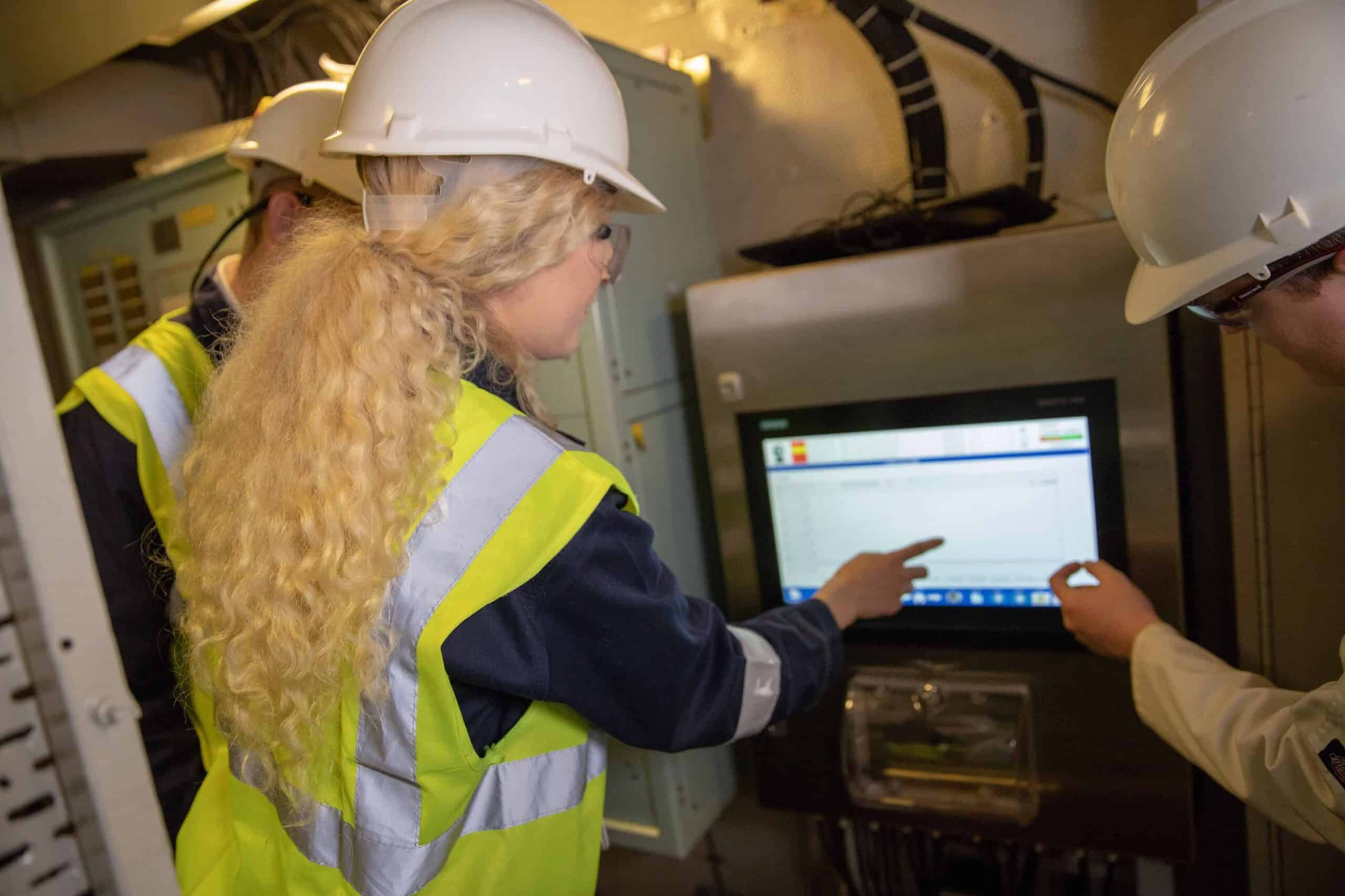Babcock, the highly-skilled Aerospace and Defence company, has undertaken a pioneering technology trial with the UK Royal Navy (RN) on board the Type 23 frigate, HMS Sutherland, delivering innovative smart technology used to predict and support future maintenance and through-life support decisions as well as empowering the maintainer.
Combining technology and deep engineering expertise to create value for its strategic partner, the six-month trial on the in-service frigate included a suite of technology and sensors installed on the Warship allowing RN personnel to get closer to the beating heart of their equipment by accessing up-to-the second maintenance information, empowering them as on-board service engineers.
The sensors captured data using a hard wired network and was transmitted to an analytics suite on board the vessel to enable personnel to remotely observe and analyse data helping to inform risk based decisions. The sensor data and analytics screens were also mirrored onto a ruggedized tablet connected to a server via a secure LiFi connection in the CW Plant Space providing the maintainers with live information at the point of need.
The Royal Navy maintainer then provided the insight from the Platform to the ashore Class Output Support Team enabling improved, optimised support planning and targeted
interventions against know system performance risk. The trial is part of Babcock’s iSupport360 Programme, launched at DSEI 2019.
iSupport360 is Babcock’s own approach to the integration of next level technology to create valuable information for the management of critical assets. By combining its expertise with unique insights across the enterprise, iSupport360 provides a powerful way for personnel to see the bigger picture and optimise the effectiveness of any asset such as; a ship, a submarine or critical infrastructure – helping to predict the future maintenance requirements of some of the most sophisticated equipment on the planet.
Ian Cowper, Engineering Director – Warships, Babcock said: “This ‘at sea’ predictive analysis of equipment is the first trial of its kind for the Royal Navy and brings together Babcock’s engineering know-how, technology provision, systems integration and through life support experience. We thrive in complex environments which require specialist engineering expertise such as this and seek to deliver innovation in every aspect of our work using our expertise to adapt and implement our technology solutions.”
He added: “By enabling enhanced decision support and optimising planning, it will ultimately improve the availability of the asset, reduce maintenance costs and safety risks and equip Royal Navy personnel to make informed real-time maintenance decisions at a systems level.
We are extremely excited about this breakthrough approach to ship support and look forward to continuing this work with our RN and DE&S colleagues.”
Following on from a similar onshore trial at Babcock’s Devonport facility, where LiFi technology was successfully trialled to harness data from a shoreside support facility, the Connected Platform trial supports Babcock’s iFrigateTM product where commercially available technology will be embedded during the build process of future Babcock designed OPV’s and Frigates.
Capt Matt Bolton, Navy Command trial sponsor said: “The Connected Platform trial is in direct support of the RN’s Maritime Support Information Exploitation (MarSIX) Strategy and is helping to deliver against the Naval Engineering Strategy which is seeking to enable, empower and equip the RN maintainer.”
Lt Cdr Dave Morton, the ship’s Marine Engineer Officer, commented that: “This trial used innovative, digital technology to measure system performance on the Chilled Water and HPSW systems – helping to detect potential issues early and it included the first UK military use of LiFi. The outputs will enable proactive support planning by the COM and an improved understanding of operational risk, whilst also empowering our maintainers at sea with new diagnostic capabilities. HMS SUTHERLAND is delighted to be the trial ship.”
The T23 Platform Chief Engineer at the time, Cdr Duncan McDonald added: “This trial is fully integrated with DE&S and NCHQ support strategies. We are proving this on the Royal Navy’s largest class, as it de-risks the direction of travel for digital legacy and future platforms.”
The drive to understand the condition of existing equipment and to support maintenance decisions based on accurate and up-to-the-minute data is a key driver as Babcock explores ways to constantly improve its delivery of through-life management and support of customers’ critical assets. Its focus on designing and trialling embedded technology allows engineers to better understand and visualise both platform and facility performance in real time.

